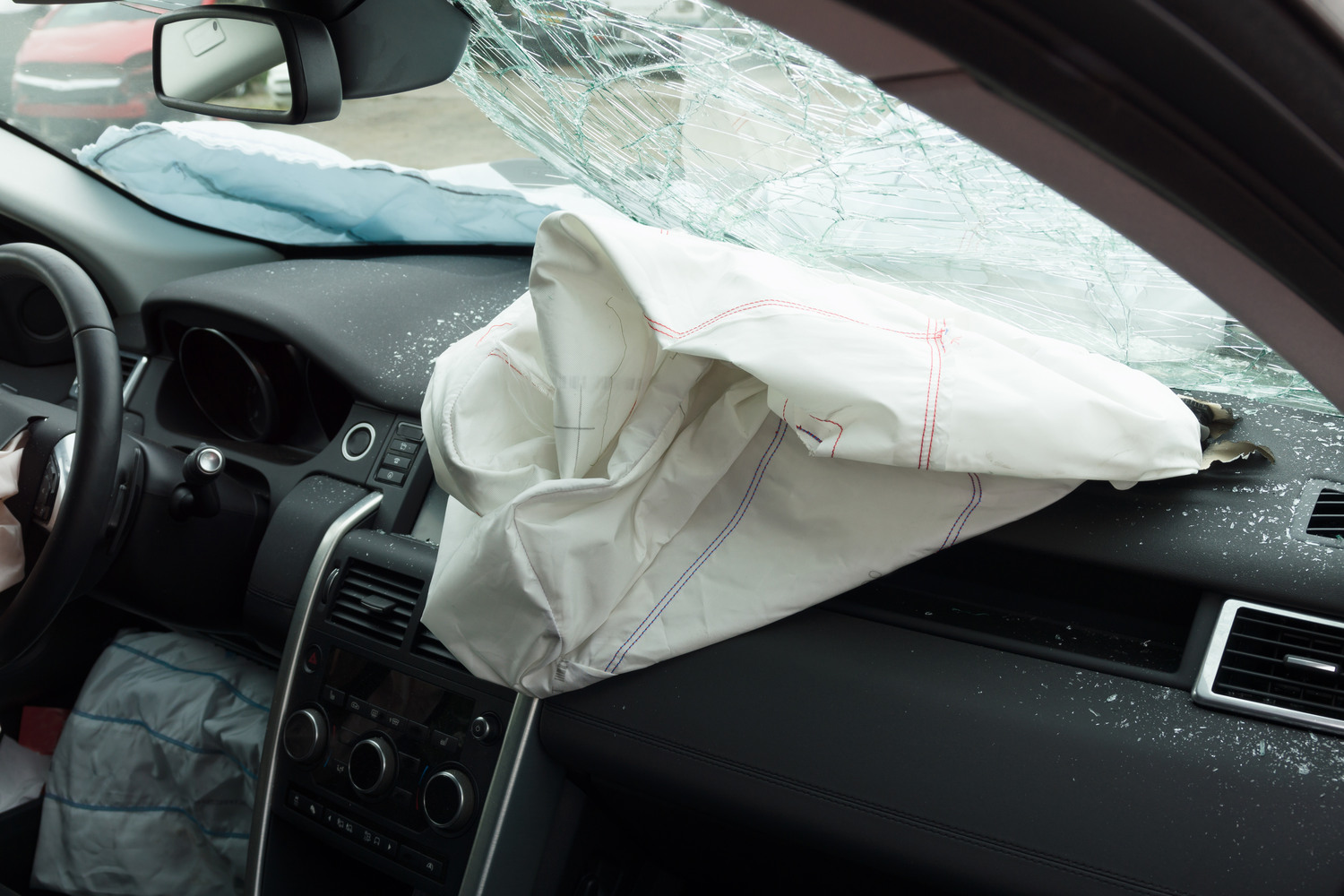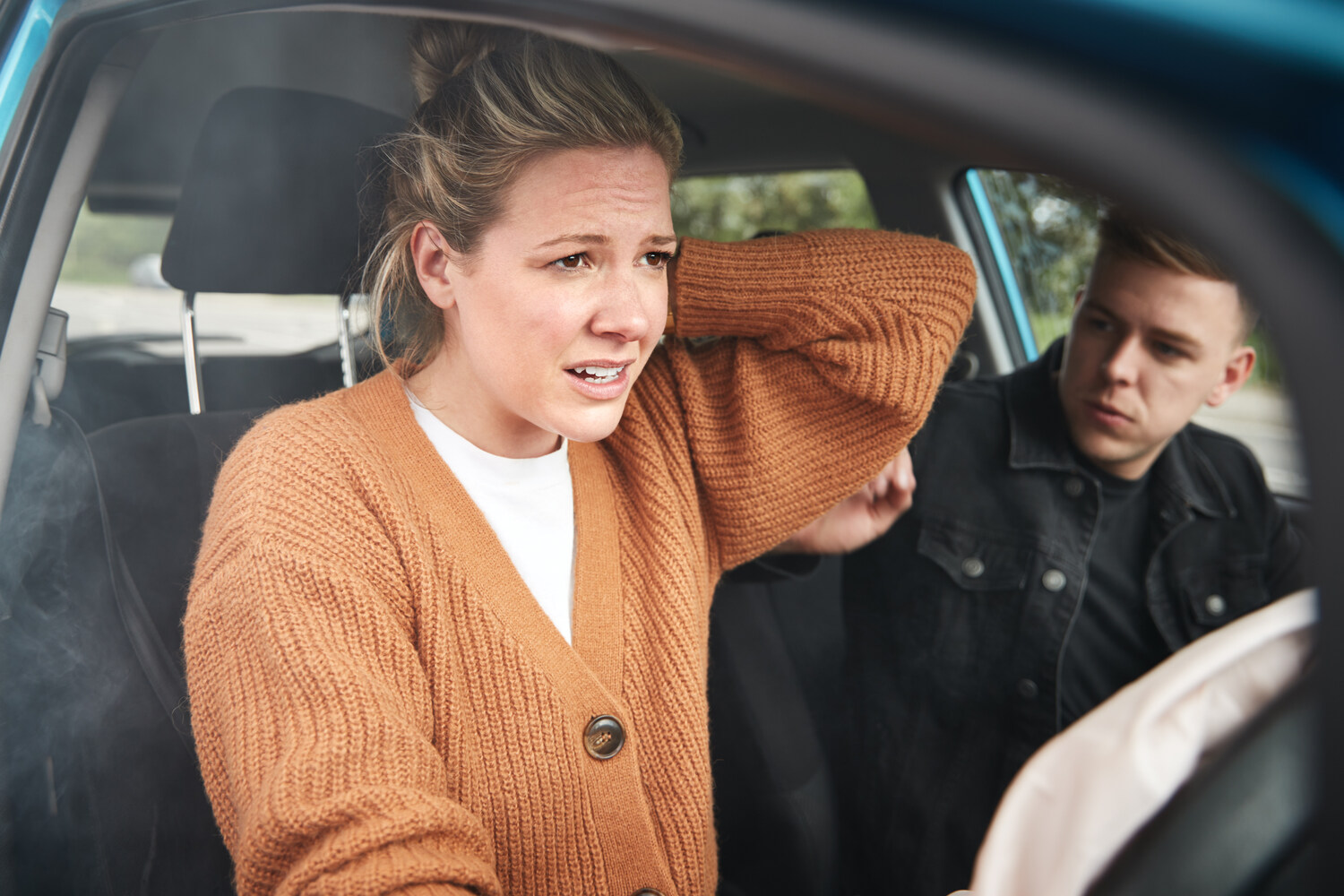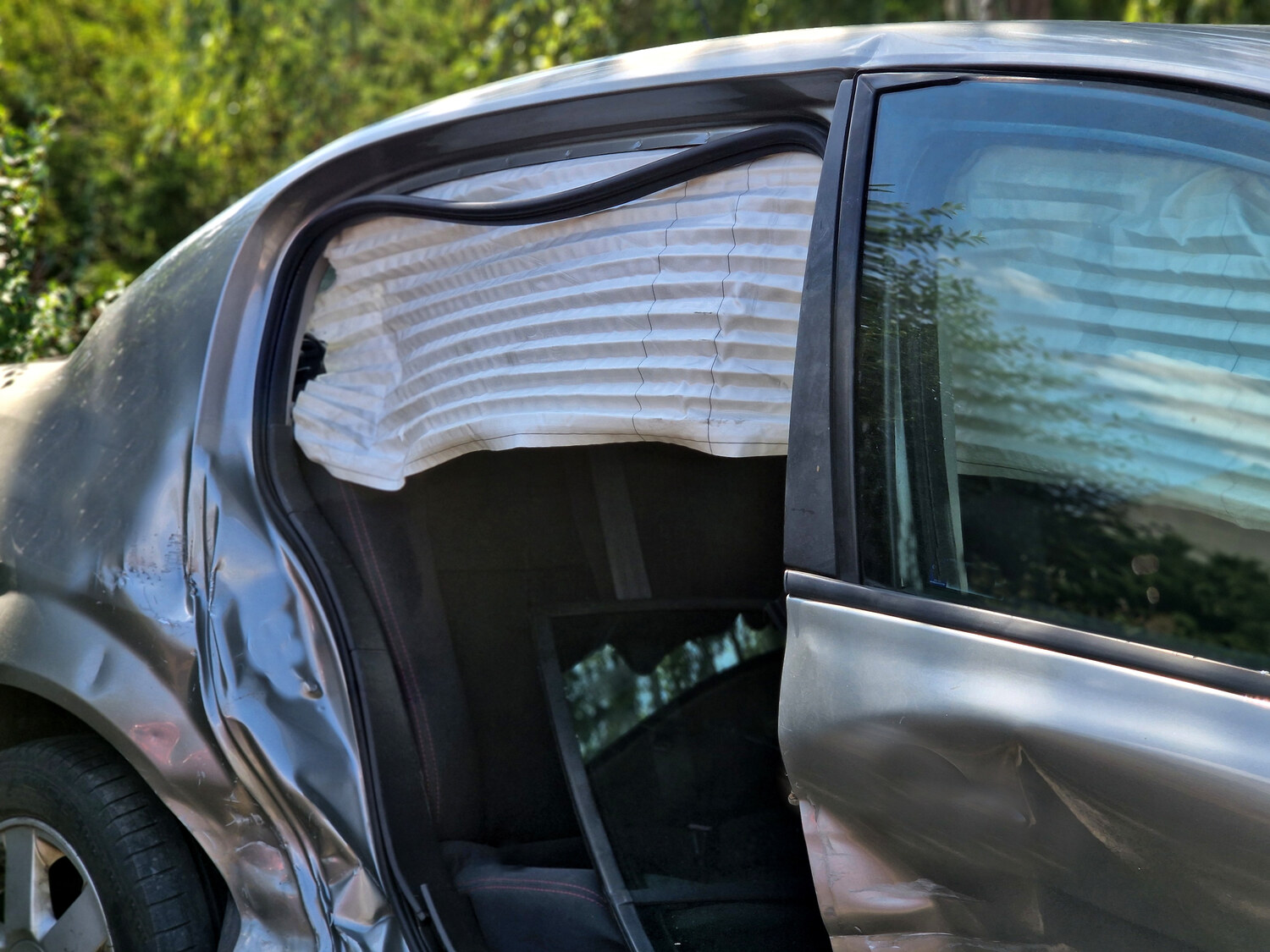RECENT POSTS
Categories
Passenger Rights After a Car Accident
Car accidents can be traumatic, not just for drivers, but also for passengers. While much of the focus after an accident tends to be on the drivers, passengers have important legal rights and are entitled to compensation for injuries sustained in a crash. Whether you were riding with a friend, a coworker, or even a rideshare driver, it’s important to know your rights as a passenger.
But what exactly are your rights, who’s responsible for paying your damages, and what happens if the driver was someone close to you? Let’s explore what you need to know if you were a passenger in a car crash.
Do Passengers Have to Prove Fault?
As a passenger, you do not need to prove who was at fault for the accident to seek compensation. One or more drivers will be found liable for the crash, but that’s not your responsibility. You were a victim of someone else’s actions, and that entitles you to pursue damages for your injuries.
Whether the driver of the car you were in caused the accident, or the other driver was at fault, your rights remain the same. You can file a claim with the appropriate party’s insurance.
Who Is Liable for a Passenger’s Injuries?
Passenger injury claims typically follow the same liability rules as any other personal injury case. One or more of the drivers involved will be determined to be at fault. Once that determination is made, the at-fault party’s insurance will usually be responsible for covering your injuries.
Depending on the accident, you may be able to file a claim against:
- The driver of the vehicle you were riding in
- The driver of the other vehicle
- Both drivers, if they share fault
It’s not uncommon for liability to be split between multiple drivers, in which case your claim may be paid proportionally by both insurance companies.

Will I Be Suing the Driver Personally?
This is one of the most common concerns passengers have, especially if the driver is a friend, family member, or coworker.
The short answer is no, you will not sue the driver personally. When you file a claim, you are making a claim against their insurance, which is exactly what insurance is for. People buy auto insurance to cover these kinds of situations: injuries, medical bills, and damages that result from an accident.
Filing a claim doesn't mean you’re taking money out of your friend’s pocket. It simply means you’re asking their insurance company to do what it’s legally obligated to do: compensate victims of the policyholder’s negligence.
What If I Don’t Want to Hurt My Relationship With the Driver?
It’s understandable to worry about creating tension if you were a passenger in a friend or loved one’s car. But your health and financial recovery should come first.
Here’s why:
- Insurance is mandatory in most states. It’s there to protect everyone, including you.
- Your friend or family member won’t pay out of pocket unless they were driving illegally (e.g., uninsured).
- Medical bills can quickly become overwhelming without a claim, even for relatively minor injuries.
- Most people expect their insurance to be used if someone gets hurt in an accident they caused.
Being honest and upfront can go a long way. A simple, respectful conversation can make it clear that you’re not blaming them, you’re just doing what’s necessary to heal and move forward.
Do Guest Statutes Affect My Rights?
Yes, depending on where you live, guest statutes may impact your ability to file a claim. Let’s take a closer look.
What Is a Guest Statute?
A guest statute limits the ability of passengers to sue drivers for ordinary negligence, especially when the ride was given for free (i.e., not for compensation like in a taxi or Uber).
These statutes are designed to prevent lawsuits against generous drivers giving rides as a favor. However, they typically do not apply if the driver was grossly negligent or under the influence.
Alabama's Guest Statute
Alabama has one of the more restrictive guest statutes in the U.S. Under Alabama law, if you're a guest in a vehicle (meaning you're not paying for the ride), you cannot sue the driver for ordinary negligence. You would need to prove that the driver acted with willful or wanton misconduct, a much higher legal standard.
This law makes it even more important to speak with a personal injury attorney in Alabama if you were a passenger injured in a crash. You may still have options, but they’ll depend heavily on the facts of the case and how the statute applies.
Do Children Count as Passengers?
Yes. Children have the same legal rights as adults when it comes to recovering compensation for injuries sustained in a crash. However, since minors can’t file legal claims on their own, a parent or legal guardian must pursue the claim on their behalf.

What Types of Insurance Cover Passenger Injuries?
Even though you weren’t driving, several insurance policies may come into play:
- Driver’s Auto Insurance: If the driver of the car you were in is at fault, their bodily injury liability coverage typically applies.
- Other Driver’s Insurance: If the other driver caused the crash, you can file with their liability insurance.
- Your Own Auto Insurance: If you have medical payments or personal injury protection coverage, you may be able to use your own policy.
- Health Insurance: Your health insurance can help pay medical bills while liability is still being determined.
- Uninsured/Underinsured Motorist Coverage (UM/UIM): If the at-fault driver has no insurance or insufficient coverage, your own UM/UIM policy (if you have one) can help.
What Can Passengers Be Compensated For?
As an injured passenger, you may be eligible for compensation including:
Medical Expenses
This includes the cost of all necessary medical treatment related to your injuries. It can cover emergency room visits, hospital stays, surgeries, diagnostic tests, physical therapy, prescription medications, rehabilitation, and costs of any future medical care required due to the accident.
Lost Wages
If your injuries prevent you from working, you may be compensated for the income you lost during your recovery period or lost earning capacity if your ability to work in the future is affected.
Pain and Suffering
This refers to compensation for the physical pain and emotional distress caused by the accident and your injuries. It can include anxiety, depression, PTSD, chronic pain, and the overall reduction in your quality of life caused by the trauma of the crash.
Permanent Disability or Disfigurement
If the accident results in lasting physical damage, such as the loss of a limb, paralysis, scarring, or other permanent impairments, you may receive additional compensation.
Property Damage
If any of your personal belongings were damaged in the accident, such as your phone, laptop, glasses, clothing, or luggage, you may be reimbursed for repair or replacement costs.
Loss of Enjoyment of Life
This compensation accounts for the inability to participate in activities or hobbies you once enjoyed before the accident. It can include loss of enjoyment in sports, travel, family life, or other personal interests due to physical or emotional limitations caused by your injuries.
The total value of your claim depends on the severity of your injuries, the impact on your life, and how long recovery takes.

What Should I Do After Being a Passenger in an Accident?
If you're a passenger who’s been injured in a car crash, here’s what to do:
- Seek Medical Attention Immediately: Even if you feel okay, some injuries show up later.
- Document Everything: Photos, witness statements, medical records, and a copy of the police report can support your case.
- Avoid Speaking to Insurance Adjusters Without a Lawyer Present: They may try to minimize your claim.
- Speak With a Lawyer: An attorney can protect your rights and handle negotiations for you.
- Don't Wait to File a Claim: Each state has its own statute of limitations. In Alabama, for example, the time limit is two years from the date of the accident.
When to Contact a Car Accident Attorney
Even if your injuries seem minor at first, consulting with a car accident lawyer early is a smart move. Car accident cases can become complicated quickly, especially if multiple parties are involved or if guest statutes come into play.
At Wettermark Keith, we have years of experience helping passengers get the compensation they deserve. Our legal team will:
- Investigate the accident
- Determine liability
- Communicate with the insurance companies
- Maximize the value of your claim
You don’t have to face this alone. Let us take on the legal burden while you focus on healing.
Seek Legal Help After the Accident
Being in an accident is overwhelming enough. If you’re dealing with pain, medical bills, or time away from work, the last thing you need is confusion about your rights as a passenger.
Call Wettermark Keith for a free consultation. We’ll walk you through your options, explain how liability works, and fight for the compensation you deserve without you needing to go up against your friend or family member personally. Let us be your advocate during this difficult time.
Ready to work together? Contact us today for a free consultation.
HERE'S WHAT TO DO NEXT
If you or a loved one have been injured and think you might have a case, call us now for a free consultation.


